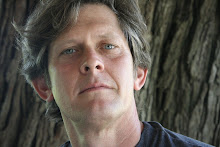
This week's newspaper column: Read it in the Hattiesburg American.
Last Monday night, maestro Gregory Fuller – armed with baton and resolute determination - purposed a confident downbeat unleashing a powerful torrent of cultural sustainability. The music: An American Requiem. The venue: Carnegie Hall.
Straight-away in the second balcony sat the composer, Edwin Penhorwood, listening as selections of his seventeen-movement opus were performed on stage for the very first time by three hundred talented individuals working together as a whole to produce a singular work of art. The piece was commissioned by the School of Music at the University of Southern Mississippi as a memorial to victims of Hurricane Katrina.
Most of the works for chorus and orchestra performed in the United States today have European origins. And why not? Bach, Mozart, Beethoven – all musical geniuses – along with fellow over-the-ponders gave us a rich tradition of music from which to draw. And in fact, preceding An American Requiem, conductor John Flanery led chorus and orchestra masterfully in Mozart’s Coronation Mass in C Major – how can you not like that?
But unique is the occasion when a contemporary work matches up with the musical standards that endure time. This was just such an occasion. Ed Penhorwood hit this one out of the park.
What’s so culturally significant about an original, contemporary piece of music?
 Although we all seem to be on friendlier terms with the older classics, the cultural reflections embodied in those melodies are borrowed from another time and another place. Familiar and inviting as the classics may be, music written a few centuries ago and an ocean away serves as a time capsule of cultures past, like watching a good black-and-white movie, while contemporary compositions – at their best - tell us something about our common experiences as articulated by the sensitivities of the artist-composer.
Although we all seem to be on friendlier terms with the older classics, the cultural reflections embodied in those melodies are borrowed from another time and another place. Familiar and inviting as the classics may be, music written a few centuries ago and an ocean away serves as a time capsule of cultures past, like watching a good black-and-white movie, while contemporary compositions – at their best - tell us something about our common experiences as articulated by the sensitivities of the artist-composer.
And what is our “culture” if not the collection of common experiences unique to our time and place on this earth?
Between chorus, orchestra and soloists, the three hundred or so of us on stage made an agreement. We agreed that regardless of each other’s level of talent (some singers were masterful soloists in their own right; others, like me, have been told they have “a decidedly choral voice”), we would work together in a singular effort for the good of the whole. No one piped up out of turn to draw attention away from the flow of the music. Everyone, whether soprano or baritone or violin or trombone, sang and played as directed to the best of their abilities to create a cohesive sound that, with great composing, moves and enriches the soul.
For those who did not make the Carnegie Hall concert, fear not. The Meistersingers will join the Hattiesburg Choral union and the USM Symphony to perform An American Requiem in its entirety in Hattiesburg on April 8th. Mark the date, get your tickets, and prepare to hear the resonant sound of your own culture.





No comments:
Post a Comment